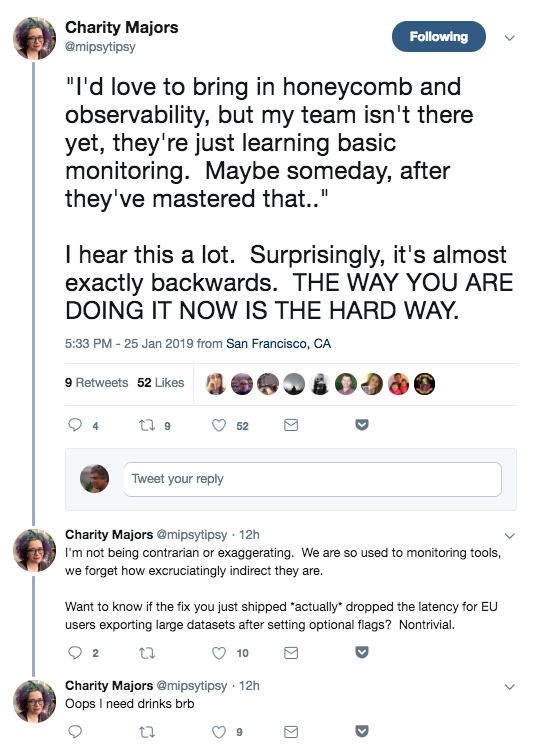This tweet resonated with me:
The comment applies to the author’s area of focus, but the pattern she observes occurs broadly in our field. How is it possible circa 2019 that the majority of people in the software field are not routinely using:
- rolling-wave planning to avoid premature investment in undeveloped ideas and to enable business flexibility/agility?
- flexible funding models to avoid locking up funds in early, long-term budget allocations?
- product-oriented experiments to steer development work toward target capabilities, as opposed to a portfolio of projects with rigid, predefined objectives and timelines?
- collaboration with stakeholders, Specification by Example, Personas, Story Mapping, etc. to understand user needs?
- cross-disciplinary collaboration to build solutions, including cross-functional teams, sitting together, swarming, mobbing, pairing, etc.?
- development techniques that yield multiple forms of value for a single effort, such as test-driven development and test automation, both for infrastructure and for applications?
- general automation to reduce errors and ensure consistency, such as continuous integration, static code analysis, dynamic infrastructure management, etc.?
…and, of course…
- observability rather than monitoring?
Do people actually prefer
